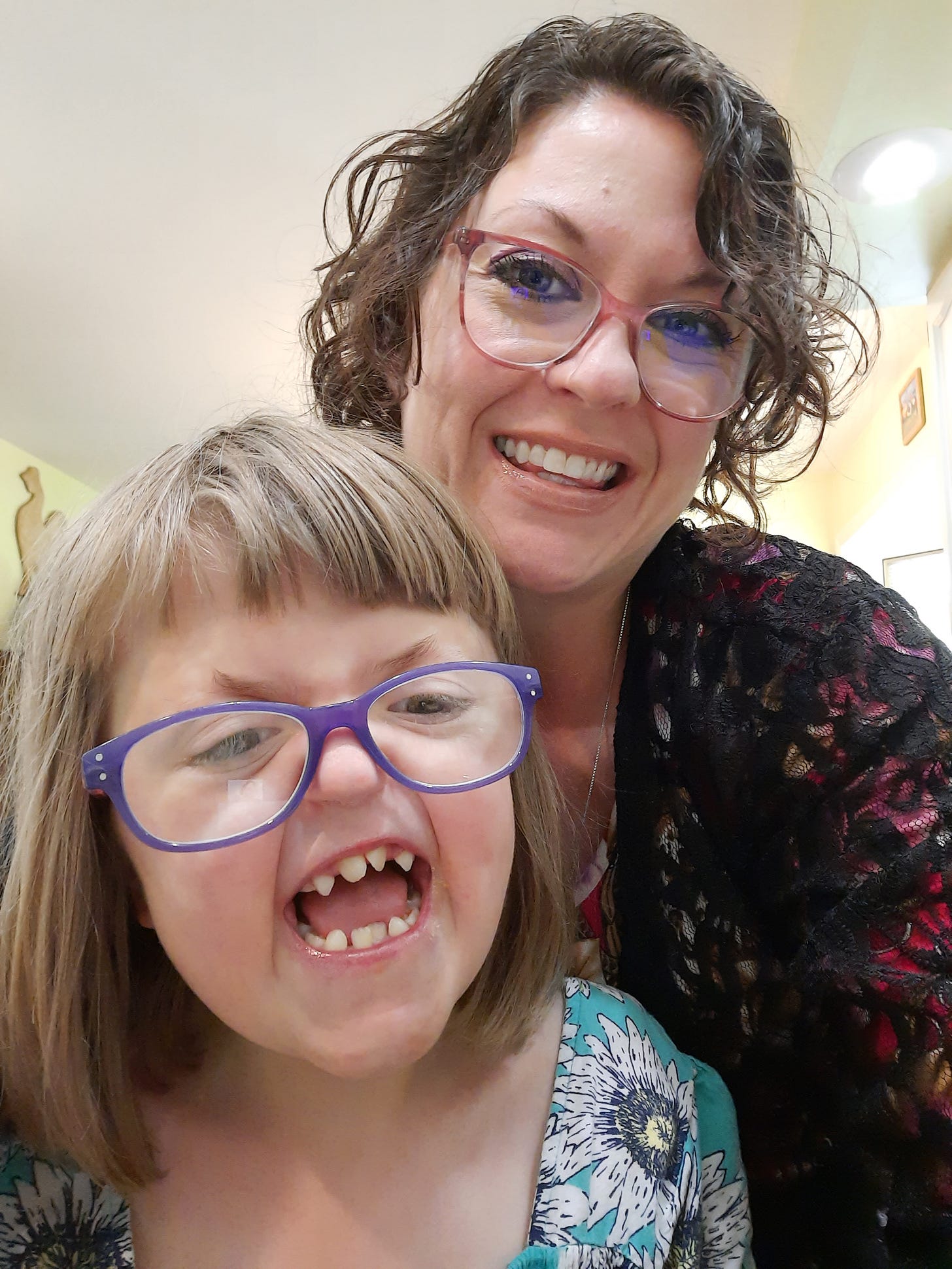There is no timeline for mourning
Time doesn't heal all wounds.
For the audio version of this essay, please click here:
What I craved after Sarah’s birth was company, or maybe a better word is accompaniment—the presence of a friend who had no agenda for the trajectory of our interaction. I needed someone to be comfortable with my discomfort, to allow me to express whatever I was feeling without judgment or condemnation or redirection.
What I (mostly) received were platitudes:
“Everything happens for a reason.”
“She’s or it’s in God’s hands.”
“God always has a plan.”
“Everything will work out.”
“It’s going to be okay.”
“Try to count your blessings.”
“You know what they say—time heals all wounds.”
“Someday you’ll look back and understand.”
“You’ll feel better once you get it off your chest.”
Each phrase, once spoken, plucked at my pain. Often, I said nothing in response, because the rage I felt was so acute that I knew I would come unhinged if I did reply. Usually, I forced a smile and a weak “thank you,” then found a way to end the conversation or visit.
People mean well, I know, but messages spoken in haste often do the opposite of their intentions: they do not comfort, they suffocate and stifle our grief.
December is one of those months that is portrayed as a time of year in which we engage in merriment and gather as a family to celebrate the holidays. I used to think everyone felt this way about December: thrilled, jubilant, expectant. I always did. But with the passage of time, I’ve lost more people (and pets) I love, and as the holidays approach, I feel a conglomeration of nostalgia from childhood memories and dread at the prospect of squeezing the seven of us with my family of origin in one small space.
Tradition is paramount in my family, which means there are certain things we do, and certain things we’ve never done and therefore, would not entertain. Because of that, I’ve felt pressure to perform during the holidays.
And where does that leave time for any wounds to heal, any sadness to settle in and speak to me?
In recent years, I’ve wondered about the genesis of proverbs that have become commonplace in our culture, that are passed from the sympathizer to the bereaved in an attempt to console or allay their heartache. Time heals all wounds has surfaced in my periphery, where I will catch snippets of discussions among strangers or overhear expressions of pity at a funeral home while in line to pay my respects.
Once, Ben and I watched a documentary, in which a woman offered an alternative to the adage, Time heals all wounds. She said, “Time doesn’t heal all wounds, but it helps us deal with our wounds.” I don’t remember the content or the context for this, but it struck me as useful, refreshing even.
It seems there are two sources for the evolution of this phrase, the first being a Greek poet, Menander, who is attributed to have said, “Time is the healer of all necessary evils” around 300 BC. The second source cites Geoffrey Chaucer’s poem Troilus and Criseyde, with a variation of our modern maxim to mean, “As tyme hem hurt, a tyme doth hem cure.”1
The suggestion to those stricken with loss that their suffering will run its course of time further punctures the wound of their grief, rather than assuaging it. When time is offered as a solution to pain, a person can feel rushed to overcome it—as if grief is something to be mastered. There is pressure to move away from the admission that there now exists a gaping hole, a chasm within us, and we doubt it will ever be filled or whole again.
I wonder what would happen if we ditched the timeline mentality of grief and instead considered that our affliction may ebb and flow throughout the remainder of our lives. What if we gave ourselves permission to feel the sorrow, to weep from time to time, to attune ourselves to this broken-heartedness, rather than ignoring, numbing, or denying it?
Grief has its place in our hearts, in the way we live, in our perceptions and attitudes, particularly in the way we treat others who have loved and lost. It’s a chance for us to listen and attend to our own pain while also turning toward another who might need true succor in the form of a safe presence.
The concept of time as a balm may be related to the idea that distance from any life event offers perspective, which is true. When we are close to our pain, it can feel as if the wound has been reopened and the experience is fresh, new. I think, though, that when we give ourselves what we need in the moment of our grief—in every moment of our grief—the raw exposure of the original wound lessens over time.
Sarah is now approaching twelve years old, and as I revisit the memory of her shocking birth and the emotions that flooded my heart for weeks, for months afterward, there is a softness to their edges now. I can access the memories without the sensation that my insides are being ripped to shreds.
Healing is a voyage, a pilgrimage. We explore ourselves—our histories, our relationships, our worldviews—over a lifetime. The encounter with our truest feelings, including grief, becomes an aspect of personal growth and maturity. There is never a point where loss ends, but we learn to reconstruct new pathways and chart new terrains.
All of life is bittersweet, even grief, even suffering. If we allow these a place in our lives, they can transform the depth of devastation into compassion, into love.
Call for Submissions
Something I’ve been churning in my mind for a while is how to showcase other people’s stories of resilience. I decided I’d like to reach out to all of you and see if you are interested in sharing what “I grow strong again” means to you. If you’d like more information, please click below:
The Book Club for Busy Readers
I’m pleased to announce that I’ll be hosting a monthly virtual book club for all of my Substack subscribers, starting in January. Generally, these will be held on the second Sunday of every month (unless otherwise noted) from 2-3:30 PM Eastern via Zoom. In two cases, I have authors who will make a guest appearance to discuss their book with us. If you are interested in joining, I will need you to send an email (jeannie [dot] ewing 07 [at] gmail [dot] com—without spaces), so that I can extend the Zoom invitation month to month.
Click here for more information:
If you’d like to explore more about my thoughts and experience with grief, here are a few essays you might enjoy:
Retrieved from https://grammarist.com/proverb/time-heals-all-wounds/








As a former genetic counselor, one of the most helpful, honest, and I think, truly generous things I learned to say to my families is "It's okay to grieve the loss of the child and family you thought you'd have." It wasn't just permission to grieve, but an invitation to call what they were experiencing grief, even though they had a living child in front of them. I so appreciate your invitation here, to allow grief to be what it is when it is and to show up how it does, without respect to time or place. It's particularly salient at the holidays, when "happy" seems to be the only appropriate way to be. Thank you, so much, for creating space for those of us who have some other, more complicated feelings at this time of year to let those be present and true as well.
Hi Jeannie,
There is no timeline for mourning indeed. Grief isn't something to get through, much less rush through within some arbitrary or self-imposed timeline. I don't ever intend to be done grieving for dear ones no longer here, including beloved pets. I don't even want to be done. Why would I? This doesn't mean I wallow or am stuck in grief. It means I keep learning to weave the losses into my very being. That's what healing means to me, and it's also how I honor those for whom I grieve.